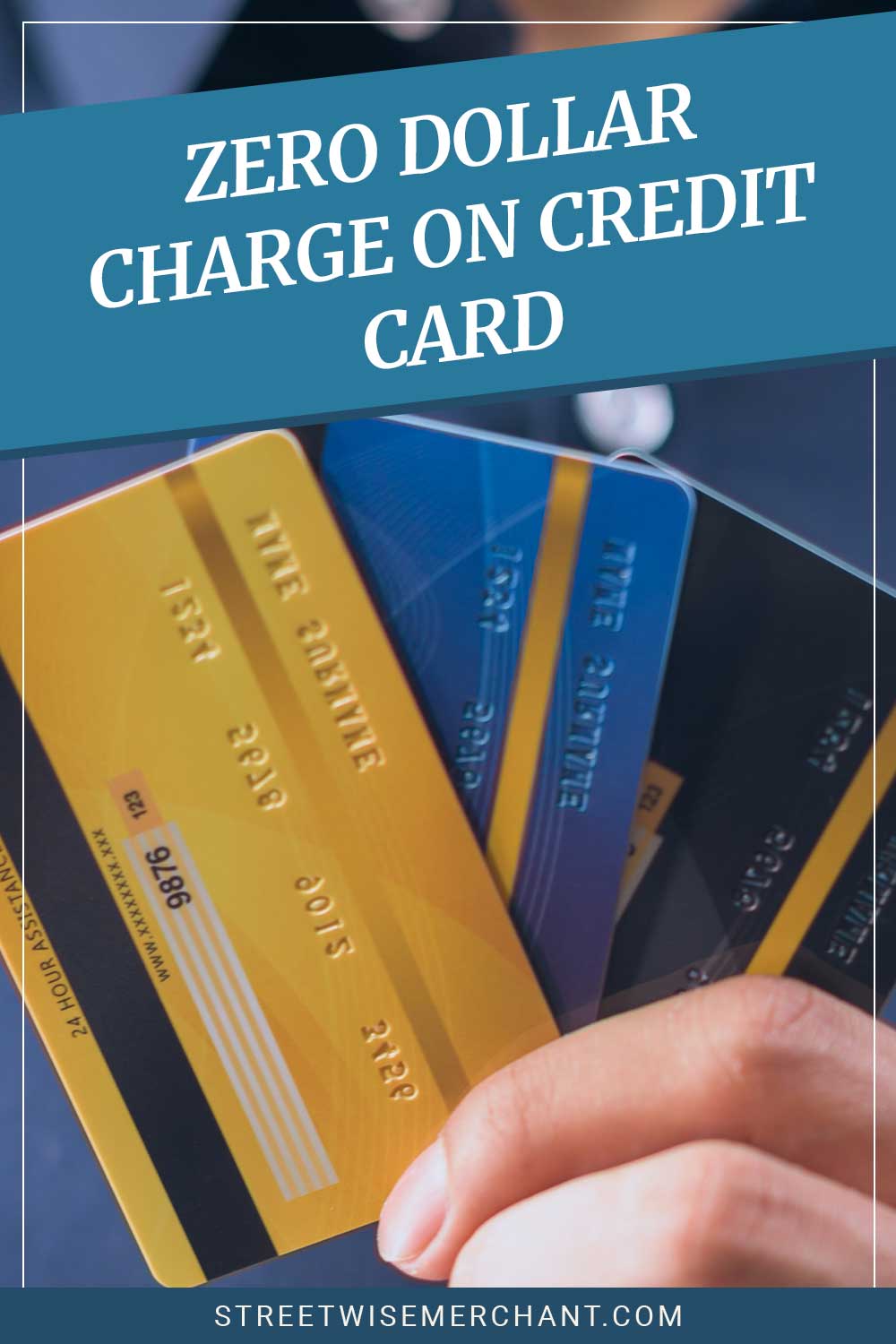We have all been there. Either you’ve got your credit card statement and noticed a charge for zero dollars, or when linking our card, we receive a message stating that they will place a zero dollar charge on our card in order to verify its validity.
Merchants may have seen this type of charge as well. For example, Visa implemented a zero-dollar charge for merchants that improperly verify credit cards. Many credit card processors followed suit with their own version of the fee.
What is a zero-dollar charge? It is a charge that allows merchants and payment portals to verify a credit card before the final payment is processed.
What is Zero Dollar Authorization
Zero-dollar Credit card processing companies and merchants use zero-dollar authorization to verify an account or credit card’s authenticity. Using this type of verification can also allow a merchant to verify personal information as well.
Most of the time, these charges stay behind the scenes and only occasionally pop up on statements. Likely because this charge happens before final payment authorization and is removed once the transaction is finalized.
What Is It For
The zero-dollar charge is used as an extra security measure to combat the rise in credit card crimes. The charge comes before the final charge amount to ensure that the final amount will go through to an active account.
For merchants, this charge could be that you verified a card outside of the card processing regulations.
Meaning you verified an account without making a final transaction. In order to avoid this charge, only verify cards in this manner that you know will be making a final transaction.
Does It Happen To All Users
For most companies, the zero-dollar charge for authorization is common practice and is utilized anytime a new credit card is added to an account. Therefore, if you are using a card for payment, it most likely has had a zero-dollar charge to verify its account.
Zero-dollar charges can be a useful tool for merchants to verify that the card is linked to an actual account and that all the relevant information provided matches.
How Often Should This Happen
This charge is actually a common practice among merchants and payment processors alike. Any time a new card is added as a form of payment or to receive payment, there is usually a verification charge associated with it.
Most people don’t notice these charges on their statements as they usually fall off after the transaction is finalized.
However, in some cases, a processing site might ask you to verify when the charge shows up on your account as another way to ensure you are an authorized person for the card.
Can You Stop It From Happening?
The only real way to avoid these types of charges on your credit card is to not use them when shopping.
This fee is so your account can be verified before the final transaction. As for merchants, only verifying cards that will have a final transaction will keep you from incurring such charges.
This helps merchants verify cards that are not associated with real accounts and accounts that all the information doesn’t quite match up. Using this type of verification protects you as much as the merchant.
Final Thoughts on Zero Dollar Charge On Credit Card
The zero-dollar charge will be around for a long time, at least until a better system of verification is available. But, in most cases, these charges are not anything to worry about and probably won’t even make it to your final statement at the end of the month.
Call your bank to receive further information if you are worried about a charge. They will be the best resource in identifying if a charge is fraudulent.
Be mindful of where you enter your card information, and it never hurts to ask if a company does a pre-transaction zero-dollar charge.
